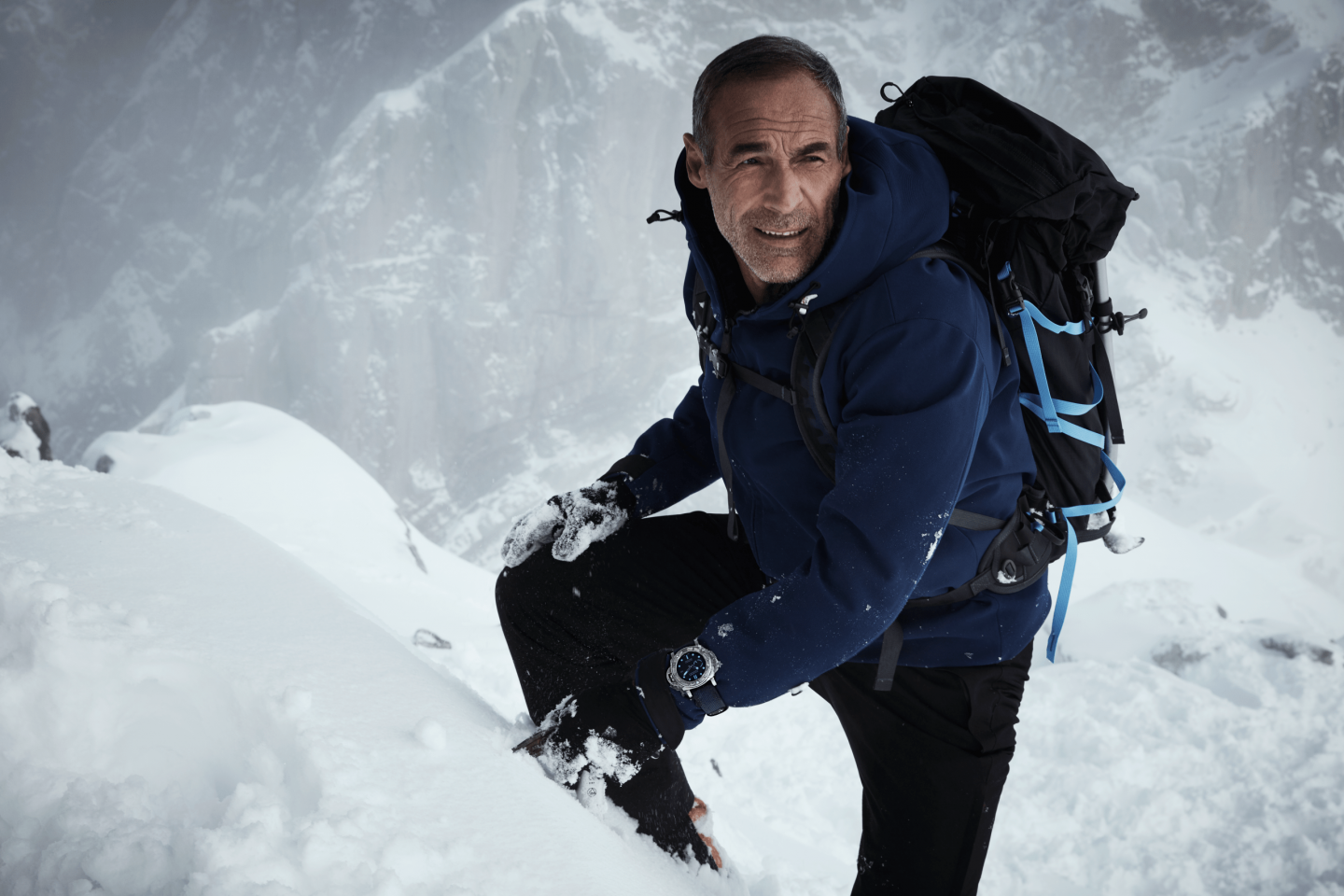Put professional explorer Mike Horn alone in a tent in a raging polar storm and he’ll be happier and more at home than ever.
He’s circled the world twice — around the Equator in 2001 and the Arctic Circle in 2004, without motorised transport both times — and braced punishing winter conditions with Norwegian explorer Borge Ousland to trek the North Pole in 2006.
Horn is no atavistic thrill seeker looking to bag his share of firsts in his extreme expeditions. An ambassador for watchmaker Panerai — whose hardwearing timepieces keep him on track during his gruelling adventures — he doesn’t care for shiny accolades and praise. If there’s one thing all that attention is good for, it’s that it gives him a platform to speak about environmental issues.
“If you do something that no other man has done, people listen to you,” he says. “For me, it’s not about saying ‘I’m the first man to ski across the North Pole’ or that ‘I’m the guy who swam down the Amazon.’ That’s all a load of BS at the end of the day, but it gives me a voice.”
And he’s certainly not afraid to use that voice, as he talks about how he’s seen the planet suffer and what needs to be done about it.
What’s your next adventure going to be and how has the Covid-19 pandemic affected your plans?
We’re going sailing back up north towards Greenland. Summer will be returning soon, and when it does, that’s when the light comes back — in winter, you’ve got 24 hours of darkness, and everything is frozen.
The last time I was in the Arctic, I was confined by nature, in a small little tent, in complete darkness. Now I want to go back to see the light come again, to see the animals go out and hunt, to see belugas and narwhals arriving.
If nature retakes its light and its life, I think it’s important to share that with the rest of the world. To make our world believe that yes, the economy is going through a difficult state, but those are the facts. Stop complaining about life and just enjoy the moment as it is. I want to show how nature takes care of itself — it’s an example we have to follow.
As for the pandemic, except for what it’s caused in the world, it’s honestly been amazing for me. I’ve just been back three months from the latest crossing of the North Pole, where I skied with Borge Ousland a total of 1,500km, and now I’m preparing to leave again. Nothing has really changed!
I live with a different outlook on life. I’m not afraid of dying; what I do is much more dangerous than the virus. We are all going to die one day and I’m really not afraid of it — because I’ve lived my life.
You’ve visited the wildest parts of the world numerous times. How have they changed?
Our last expedition in 2019 was an example of how drastically the environment is changing. For the first time ever in the history of our planet, a sailboat — my sailboat — sailed 85 degrees north into the Arctic Ocean. No sailboat has ever sailed there, because it is always frozen! That’s only 600km from the North Pole, the top of the world that’s protected by ice.
Also, last year, we were on the ice for more than 90 days and we didn’t see a single polar bear. It was only after the 100th day that we saw a mother with her two cubs and then a male polar bear. But the male killed the babies, because when the mother has her babies she doesn’t want to mate. There just aren’t enough female polar bears.
When I went to the Arctic in 2006, I saw one every three or four days. I had one on my stomach — I was in my sleeping bag in my tent and the bear was trying to get to my food.
You have to physically be there to understand that the climate is changing rapidly. That’s why we, as explorers, have an obligation to others and nature to say, “Listen guys, this is what is happening out there.”
That’s why I spoke at this year’s World Economic Forum; I want to try to educate people to start taking responsibility. And we all have an obligation — it’s not a “maybe” anymore.
What’s the biggest threat to humanity?
Humans. It’s a little like the polar bears — the male kills his own babies so he can mate again. It’s possible his population will ultimately go extinct.
I’m just a global citizen who believes all eight billion people in the world have the right to live in a sustainable and comfortable manner. We cannot have people who use and abuse the planet as they want, while others try to take care of it. We’ve got to get together as one.
I shouldn’t care, I’m an old man. In a way, I should say, “I’ve got another 10,000 days to live, if I’m lucky, to get to 82. Otherwise, I’ve lived my life, so it’s not my problem.” But I’ve got young daughters, and I want to give them a planet that’s worth living on.
This story first appeared in the June/July 2020 issue of A Magazine.

